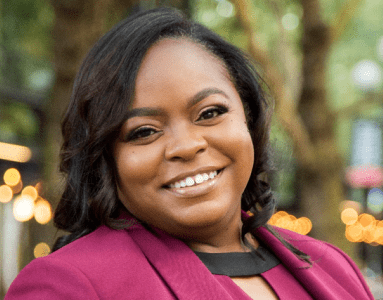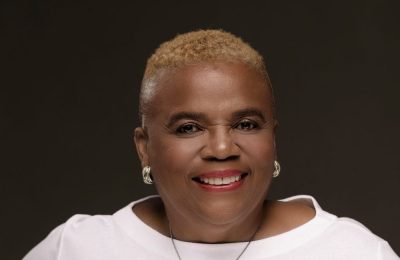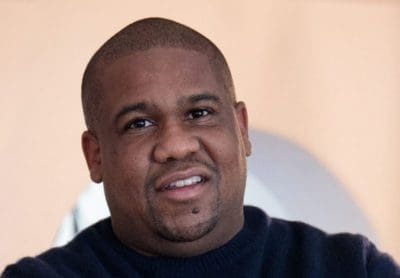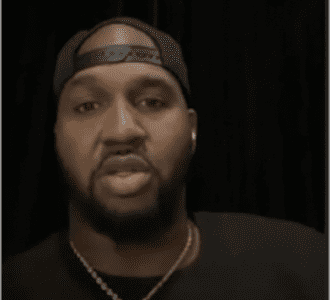All college students hope to set themselves up to have a bright future, and the Thurgood Marshall College Fund is creating endless opportunities for scholars at HBCUs. It’s the largest organization in America that focuses exclusively on public historically Black colleges and universities, as they represent 80% of all the students attending HBCUs.
Spearheading the organization is Harry L. Williams, the president and CEO of the Thurgood Marshall College Fund. He spoke with rolling out about the college fund, his mission as a CEO, and the importance of HBCUs in America.
What is your mission as a CEO?
The mission is changing the world one leader at a time. We’re focused on getting up every single day, using all of our energy and all our resources to impact our students attending these institutions, and trying to create this amazing power that aligns with the legacy of the name that we represent, Thurgood Marshall, who was a champion for all but more specifically was unapologetically supportive of the Black community. Our mission and our focus are to continue that legacy and to inspire the next Thurgood Marshall. When you take that as your vision, we have over 300,000 HBCU students and we are focused on making sure that each one of those students has big goals in mind and big goals to achieve excellence just like our namesake.
What have you learned about yourself as CEO?
I’d say the biggest thing that has been eye-opening for me is to don’t take anything for granted. You have to be on top of everything, not necessarily informing, engaging, or participating in all aspects of the organization, but you have to know it. You have to be ready for any opportunity, you have to be ready when they call you, and you have to be ready to go. I tell my team I don’t use the word “tired” here. You can’t be tired. We have people who are energized, and when you have energy that’s going to move forward, you push forward, and that energy requires you to get up early, and go to bed late. As a CEO, you don’t get the luxury of putting a tag on your email saying “I’m out of the office for the next three days and you can’t contact me because my email is weak and you can’t find me.” Some of my team members get on me and I get on them because I tried to let them know that when you’re running an organization, and especially when you’re in charge of it, you are on 24 hours, and you have to be ready for that. That’s the big responsibility of being a CEO because your responsibility is making sure that the people who are working with you and working alongside you are dependent on you to keep revenue coming into the organization. When you have revenue coming in, you’re talking about lives, you’re talking about families, you’ve got to make sure that there’s stability there and part of your responsibility is to make sure that continues to happen in a very deliberate and strategic way.
Why are HBCUs important to Black America?
HBCUs were created for us. They’re ours. And when it’s when it’s part of you, you have a responsibility to take care of it, just like the African American church. There’s nothing like a Black church that was formulated with you in mind. When you look at our HBCUs, you have to make sure that they are receiving the same level of funding and resources as those other institutions that may not have a majority of us attending, but we have access to those institutions. Part of my responsibility in this role is I don’t look at this as a job, I look at this as a responsibility. You have a wide variety of skills that you bring to this. You want to bring your best and to be a CEO, you have a wide variety of viewpoints and perspectives. When you’ve been exposed to a lot, your responsibility is to bring that back into the organization and create something that’s going to be significant, very impactful, and very positive, and part of your responsibility is to continue to elevate and continue to move up consistently. You’re always talking about growing and expanding, and it’s a continuous journey. You never really get there because it’s a continuous journey of excellence, and that’s why these HBCUs have played a critical role in helping to build America for over 150 years because when they were created, we African Americans didn’t have the right to attend a historically White institution because they had rules on the bolts that said Blacks cannot go to this particular institution, so we had to create our own.
We had to create our own medical school, we had to create our own law school, and we had to create our own pharmacy school. Without HBCUs, there would not be a Black middle class as we know it today because HBCUs helped create the Black middle class. These institutions have played a critical role in the foundation of the African American community, but a critical role in the foundation of America because of the historical significance of these institutions, what they have done, and the talent that comes from these institutions. The largest percentage of African American doctors over 50% graduated from an HBCU. Eighty percent of the judges and lawyers graduated from an HBCU. You look at the number of engineers, over 50% of Black engineers graduated from an HBCU.
Why does curiosity play a role in being a CEO?
Curiosity plays a critical role because when you are curious, you’re always thinking and trying to figure out what is happening, and you’re not relaxing. You are always trying to figure out how you’re going to continue to elevate, how are you going to continue to bring others along, and how are you going to continue to move forward in a very positive strategic way. These are the things that you have seen, and they’re critical traits. Some people may think that you got the CEO title all of a sudden, and they’re calling you Mr. CEO, and that’s it. You don’t get into it just because of the title, you get into it because having that title is going to create an opportunity for others. You get in it with the right intentions, you don’t get in it for self-serving, you get in it because it’s going to be impactful, it’s going to change someone’s life, and it’s going to make somebody else’s life better. One of the things that I tell our team members, we’re in the business of changing lives, and when we say changing lives, we’re talking about changing lives so that people can have a better life. When you have a better life, you’re going to feel good about yourself, you’re going to feel good about your community, and what we do know is that students who perform at a very high level feel good about themselves and their environment. That’s what a CEO’s responsibility is, to make sure that people understand clearly that doing these things is going to create opportunities for others that’s going to elevate them, and it’s going to move them forward in a very positive way. Curiosity comes into play because you’re always looking at how you continue to improve.
How do you communicate with your team members to keep them motivated?
Communication is the key to any organization, but it’s consistent and repetitive communication, and constantly reminding people why we are doing the things that we do. You have a regular cadence of doing it, so everybody can anticipate that every Monday, we’re going to meet with our senior team. Every Monday, we’re gonna go through our strategic plan. Every Monday, we’re gonna keep talking about it. Part of the CEO’s responsibility is to have team members around whom they can call. These are chiefs, chief operating officers, chief of programs, and chief of business operations, and these individuals have a responsibility to take the message from the CEO and spread that message throughout the entire organization on a repetitive basis. It requires that level of energy and then it requires face-to-face contact. We have to bring people together, we have to sit down and have a meal together. Those things play a critical role in building community and building a reason why you do this and you want people in your organization who clearly understand your mission. They clearly understand why you’re doing these things and they have a clear understanding of the importance of doing these things and what it will do for others. That’s part of the responsibility of someone who is in charge of running a large organization.
What is the value of attending an HBCU?
I would challenge anyone out there to go and talk to your math teacher or someone who understands numbers. The data is there on how much someone will make over their lifetime, and based on the quality of life here in our country, Americans are living much longer and older into their 80s. You’re going to work roughly 30 years to get a retirement, and when you finish working, you’re going to want a standard of living that’s going to align with the quality of your life. What a four-year degree will do is enhance that standard of living in a very intentional way, and there’s a big gap between someone with a four-year degree and a high school diploma. You will have an earning, and there are people out there making good money with a high school diploma. The reality is people who have four-year degrees will make in some cases, one and 2 million more in their lifetime versus someone with a high school diploma. I would encourage the young audience that college matters. Sometimes people hear that college is hard. Anything you want in life, if it’s easy, everybody will be going to get it. When you put in the hard work, there’s going to be a return on that at the end of that process. That’s what they call delayed gratification. Young people want this instant gratification, but when you go to college, it’s a process. There’s a process that you have to go through. It’s not going to be in and out. We call it developing, you are a different person, and there are different stages of your development. So when you’re 18 versus 22, you’re different in your development, then when you go from 22 to 30, you’re different, and college will help you go through those stages of development to get you prepared for life so that life will be the best second best life possible for you. Education will be a strong foundation in that journey.

















